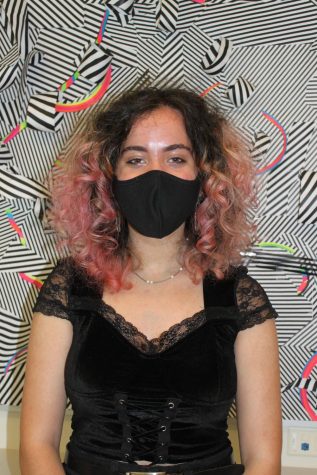A Hanukkah Like No Other
January 7, 2021
Hanukkah, the Festival of Lights: A holiday for spending time with family and friends for some, and a time for gift-giving and dreidel-spinning for others. A holiday that commemorates the victory of the Maccabees and the oil that miraculously lasted for eight days and nights instead of only one. A holiday rooted in miracles and unbelievable odds. A holiday story and message that is needed now more than ever. Hanukkah has been celebrated for centuries, but this year it’s a little different, to say the least. How are Jewish people celebrating Hanukkah during the pandemic?
Junior Leon Cohen remembers how he used to celebrate.
“My family usually celebrates Hanukkah by going to visit family members and lighting the candles and having traditional Jewish foods,” said Cohen. “We play dreidel and light the menorah, exchange gifts and have a good laugh.”
Due to Covid-19, many families were unable to get together and celebrate Hanukkah this year in person.
“My family [was] unable to throw our annual Hanukkah party where we would normally invite forty plus people,” said Cohen. “It is loud and joyous. Friends and family come over for latkes, fried food, and to reconnect towards the end of the year.”
Many feel that Covid-19 has drastically changed how they are celebrating this year. Some are replicating that lost feeling by getting tested before celebrating together in pods while wearing masks.
“Covid has affected how we’re celebrating this year substantially,” said Cohen “We haven’t been able to go to synagogue and have large gatherings. All the members of my family work from home and my extended family is either retired or works from home. We have created pods that have allowed us to mingle during Hanukkah while getting tested and wearing masks.”
Eleanor Altwarg, a junior at Chamblee Charter High School, has found that her holiday experience hasn’t substantially changed from years prior. The one thing that she misses the most is celebrating with her friends.
“[…] I usually just celebrate with the people I live with, but in the past, I’ve had friends over to join us, which I can’t do this year,” said Altwarg. “I really enjoyed sharing the holiday with my friends who don’t usually celebrate.”
Sadly, Hanukkah has never been devoid of or safe from anti-Semitism, not even during a global pandemic.
“The one downside that I was hoping to see a change from that I have unfortunately had to get used to is that every night of Hanukkah, there is an anti-Semitic attack around the world […],” said Cohen.
Not only does anti-Semitism occur on Hanukkah, but it has become normalized and almost expected.
“It doesn’t surprise me, I expect it,” said Cohen. “I would be honestly surprised if there were not anti-Semitic attacks on Jewish holidays.”
This year was no different. On the third night of Hanukkah, a man’s leg was run over during a menorah lighting at the University of Kentucky Jewish Center in Lexington. The driver was reportedly shouting anti-Semitic slurs at the congregation. On the fifth night of Hanukkah, the North Shore Hebrew Academy’s website was hacked to show Nazi imagery and Jewish slurs. One page detailed a field trip to Auschwitz and the entire website was littered with Swastikas. Students’ and teachers’ credit card information and addresses were leaked. Those are only a few of the incidents of anti-Semitism this Hanukkah.
When asked his opinion on the media coverage of anti-Semitic crimes, Cohen didn’t hesitate to answer.
“[…] I think the media under-covers anti-Semitic attacks,” said Cohen. “It doesn’t fit their narrative about how hate and power is in America.”
He elaborated on what he meant by providing a few examples and situations to further explain his stance.
“At the most simplistic level, it’s almost impossible to see religion in a person,” said Cohen. “Looking at someone’s race is much easier for humans to decipher. It is really clear through learning about American history in public school that black people were always disenfranchised. People didn’t think that Jews were being disenfranchised. Like how there was a Nazi political party in America or how Jews were forced to change their last names, like my family. Without the broad public having knowledge around the topic, it’s hard for them to get clicks; it’s hard for them to make money. It doesn’t fit their narrative.”
Anti-Semitism isn’t new and it isn’t going away anytime soon. In 2019, anti-Semitism was at an all-time high with a twelve percent increase compared to previous years. It is more important now than ever to not give in to fear. Hanukkah should be a joyous time celebrated with family and friends, but these acts of hatred can’t go unnoticed.










